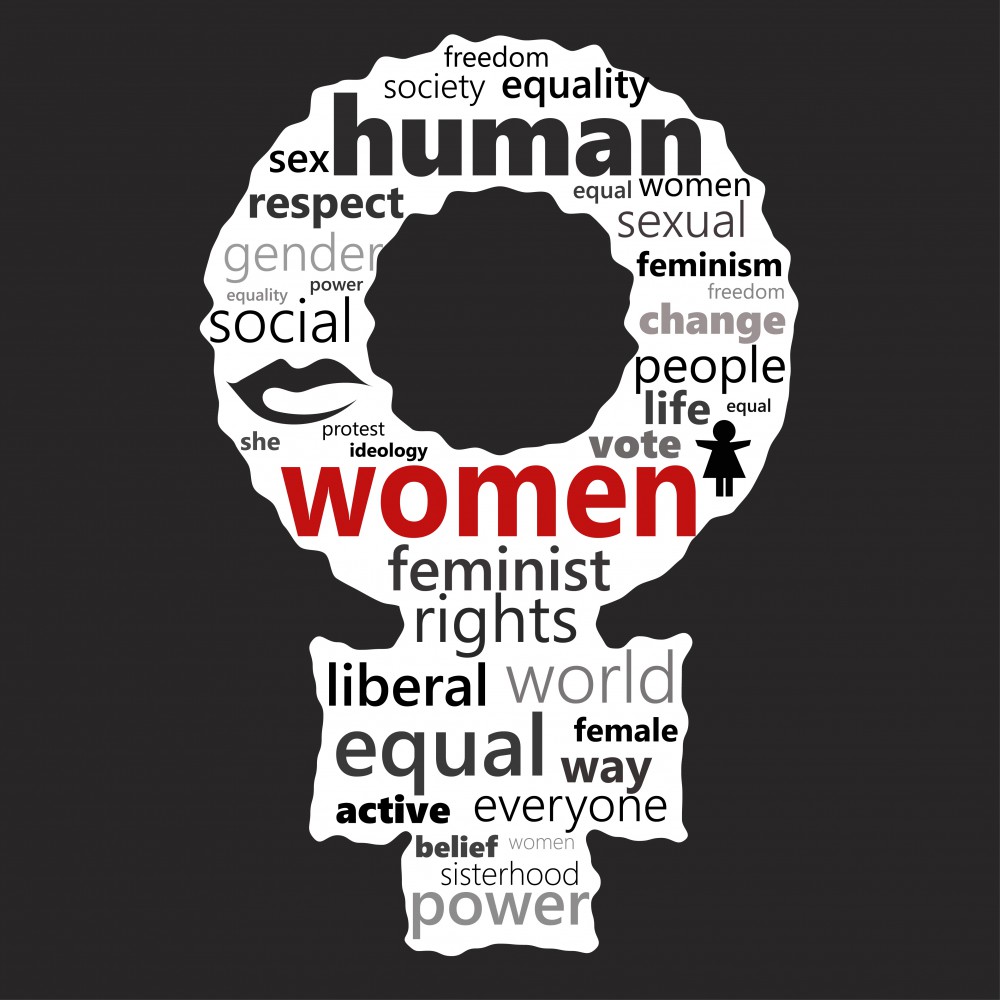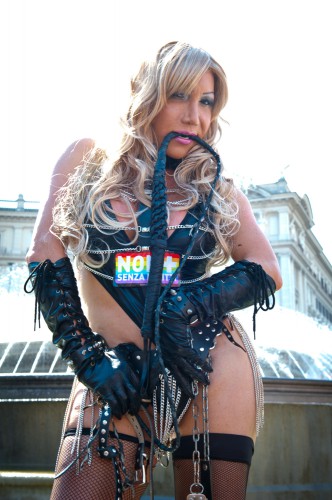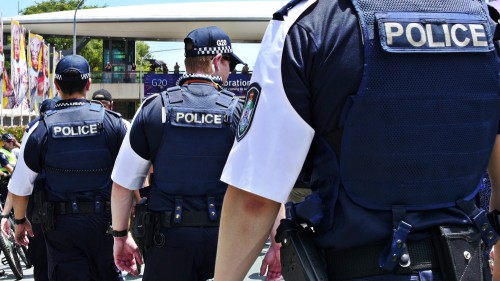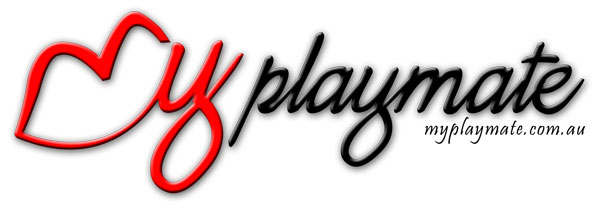
“To Protect and to Serve” famous motto of the Los Angeles Police Department since 1955. Getting in bed with the authorities in modern day Australia, who is serving and who is protecting are lines that have become increasingly blurred over time as added regulations are introduced to police the highly complicated and often vulnerable relationships that collectively exist between sex worker, brothel owner and brothel user.

Once upon a time in the west, a race to cross county lines was enough to put a problem (or if you were a real cowboy) to put the law behind you. In Australia crossing our state lines is not the half of it, a nation consisting of 7 states with 7 marginally different policies and a wide range of legal jurisdiction covering an ever growing sex industry. In Sydney and New South Wales, brothels (premises offering sex services for a price) are legal and require a council planning approval. Working escorts are unregulated, street soliciting is permitted at a reasonable distance from public dwellings, schools, churches and hospitals and living off the earnings of a sex worker is illegal although brothel owners and madam operators of sex services premises are exempt from this ruling. Any advertising of sexual services is also prohibited.
In Melbourne and Victoria, brothels and escort agencies with more than 2 workers must have a licence from the Business Licensing Authority (BLA) plus council planning approval. There are also restrictions on the location and size of brothels (up to 6 rooms is allowed) Small brothels (1 or 2 sex workers) are exempt from licencing but must register with BLA + hold a local council planning permit consequently advertising is legal when the BLA licence number is provided. Any operation of unlicensed brothel premises or soliciting in public places are both illegal.
In Brisbane and Queensland, brothel owners must have a licence from the PLA: Prostitution Licensing Authority and local council planning approval, both need to be renewed annually. There are similar restrictions on location and size of brothels (a maximum of 5 rooms and no more than 5 sex workers on the premises at one time) Soliciting in a public place and advertising are illegal.
In Canberra and The ACT, brothels are permitted in certain prescribed (industrial) locations with a council planning approval. Escort agencies are legal. Brothels, escorts and private sex workers must register with the BLA. Any soliciting in public is illegal.

In Perth and Western Australia, brothel keeping with more than one sex worker is illegal. Escort agencies are legal whereas soliciting in a public place is illegal. The Government introduced a Bill to prohibit all forms of sex work from residential areas and to limit the number of permitted brothels to a small number of areas. A strict licensing scheme was proposed for brothel operators and private sex workers however the bill has not yet been passed into law.
In Adelaide and South Australia, brothels, escorting and soliciting in a public place are all illegal while in Hobart and Tasmania brothel keeping and soliciting in a public place are illegal, there appears to be a grey area over escorting which has been described in an official document as ‘probably legal’? This is how confusion begins and confusion can lead to complication. In Darwin and Northern Territory brothel keeping and soliciting in a public place are illegal while escort agencies are legal with a licence from the ELA: Escort Agency Licensing Board.
The NSW regulatory system is the most decriminalised of all Australian jurisdictions and imposes least control on the sex industry though a range of criminal laws remain relevant to overseeing city wide brothel operations. The Kirby Institute of NSW, a powerful government aligned health and humans right group, asserts that if a brothel is not operating lawfully there are a number of measures available to local councils under the above mentioned acts such as applying to the Land and Environment court for an order to comply or issuing brothel closure and or utilities orders (which allow water, gas & electricity supply to the premises to be cut for up to three months).

The Kirby Institute of NSW agrees that there exists a public misconception that violence is something that just happens in sex work, something which is par the course and to just accept it, but in almost all other lines of work any violence whatsoever is not acceptable. For many in the industry, jumping through all the regulatory red tape is often too hard and they can end up working on the wrong side of the law. In Melbourne, Victoria for instance you can’t legally offer services in your own hotel room, it has to be in a hotel room or private address of the client. For many would be escorts they feel forced to choose between working in a way they feel most comfortable and most in control but not being compliant or being compliant but having to make certain compromises which many feel actually outweigh the benefits.
For both brothel owners and sex worker there is a need to tread carefully through the maze of regulations particularly the variations in law from state to state. Victorian sex workers have voiced a real concern that new regulations could leave them potentially vulnerable to blackmail and attacks of violence, psychological or other, for example, in Dec 2015 there was an attempted case of blackmail wherein a Melbourne man demanded sexual services free of charge otherwise a threat to alert the authorities to the escorts questionable legal circumstance would be undertaken. “I didn’t know what to do!” the shaken escort recounts to news.com.au “He was just sitting there patiently and calmly threatening to call the police. He seemed to think he would get away with it. I said to him this is my room I’ve asked you to leave and you’re not and if you won’t then I’ll call hotel security. But he just said ‘ok fine I’ll call the police’. I didn’t know what would happen. I wouldn’t classify him as a client because he never paid me and he never agreed to any of my terms, but he made a booking and came into my space and then refused to leave my room. He was shocked when the security guard removed him and he was yelling ‘she is the one breaking the law!”
NSW Premier Mike Baird submitted a recommendation early this year that a licensing authority be created as a measure to combat sex offences, for brothels to be vetted with a ‘fit and proper’ status and to effect that police be given sweeping new powers similar to those in place in Melb VIC has been met with mixed review partly due to Mr. Baird’s much criticized role in the heavily discussed Sydney lock out laws and drinking curfew. Street artist Scott Marsh paid tribute to the NSW Premier with an inner city portrait mural of Mike Baird pictured holding a kebab and a glass of wine. The mural was inspired by the “Keep Sydney Open” marches of early 2016.

A recent Kirby Institute report has made estimates of between 8’000-10’000 female sex workers working across NSW, a vast majority(66.7%) being from Asian or from non-English speaking backgrounds, the report concludes there may be up to 120 street-based sex workers on any given night around Sydney and at least 101 brothels operating within 20km of Sydney CBD.
The Scarlet Alliance, a national, credited association for Australian sex workers fears that small brothels could by forced out of the market by NSW Parliament licensing adjustments. Alliance President Elena Jeffrey said a licensing model in the industry would be expensive creating barriers to comply with the law and would not support the autonomy of workers. “Involving police in the lives of sex workers impacts the little fish much more than the sharks. Council proposals would see big brothels allowed, as long as they paid a hefty fee for the privilege,” she said. Following NSW Premier Mike Baird’s election promise to look into state laws on brothels, a more recent inquiry is exploring the licensing of NSW brothels debating items such as closing and penalising illegal ones, brothel locations, the nature of the industry, current regulation and the protection of sex workers. Public demands for re-criminalising sex work in NSW have so far been ignored based on the argument that imposing further red tape or increasing police powers only compromises the health, safety and privacy of the sex worker. Scarlet Alliance President Elena Jeffrey says “It has been over two decades since criminal charges for sex work were taken off the books in NSW and what a wonderful time it has been!” It was reported for example that said decriminalisation of sex work successfully reduced cases of HIV by 46% for the time period 2004-2014 according to The Lancet Journals 2014-15.
The Nordic Model, a 2010 bill proposing a large number of measures in different social sectors to combat violence against women, prostitution and sexual harassment in working life, is seen as a powerful reference model moving forward. According to the bill, one issue closely related to violence against women and present lack of gender equality was the issue of men who purchase sexual services, usually from women and namely, the issue of prostitution. The underlying rationale of the Swedish model is that sex work is inherently harmful both to sex workers and to Swedish society because all sex work is a form of male violence against women and therefore undermining to gender equality. Criminalising male demand for prostitution becoming the most equitable and effective means of reducing the prevalence of prostitution. The Nordic model is being strongly considered for trial use in France, UK, Canada and Scotland. In Australia the onus is on building a safe framework that protects the interest of all groups balancing human rights issues with the needs and wants of conducting viable, day to day business.


Comments